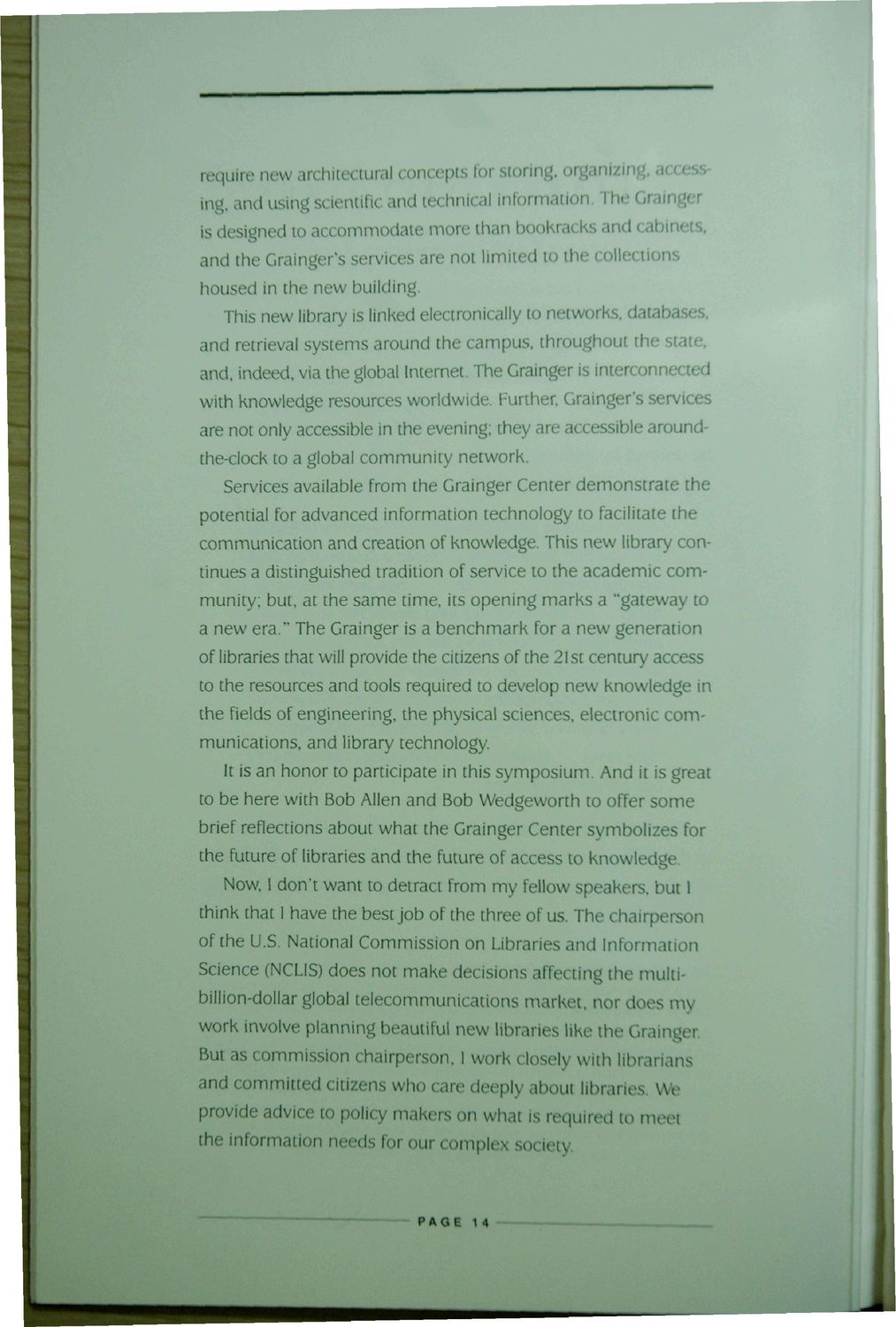| |
| |
Caption: Dedication - Grainger Engineering Library Symposium
This is a reduced-resolution page image for fast online browsing.

EXTRACTED TEXT FROM PAGE:
require new architectural concepts for storing, organizing, accessing, and using scientific and technical information. The Grainger is designed to accommodate more than bookracks and cabinets, and the Grainger's services are not limited to the collections housed in the new building. This new library is linked electronically to networks, databases, and retrieval systems around the campus, throughout the state, and. indeed, via the global Internet. The Grainger is interconnected with knowledge resources worldwide. Further, Grainger's services are not only accessible in the evening; they are accessible aroundthe-clock to a global community network. Services available from the Grainger Center demonstrate the potential for advanced information technology to facilitate the communication and creation of knowledge. This new library continues a distinguished tradition of service to the academic community; but, at the same time, its opening marks a "gateway to a new era." The Grainger is a benchmark for a new generation of libraries that will provide the citizens of the 21st century access to the resources and tools required to develop new knowledge in the fields of engineering, the physical sciences, electronic communications, and library technology. It is an honor to participate in this symposium. And it is great to be here with Bob Allen and Bob Wedgeworth to offer some brief reflections about what the Grainger Center symbolizes for the future of libraries and the future of access to knowledge. Now, I don't want to detract from my fellow speakers, but I think that I have the best job of the three of us. The chairperson of the U.S. National Commission on Libraries and Information Science (NCLIS) does not make decisions affecting the multibillion-dollar global telecommunications market, nor does my work involve planning beautiful new libraries like the Grainger. But as commission chairperson, 1 work closely with librarians and committed citizens who care deeply about libraries. We provide advice to policy makers on what is required to meet the information needs for our complex society. P A G E 1 4 ••—*-- -
| |